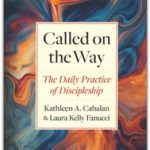
Eye Health and Protecting Your Vision
Many people adjust to vision changes without questioning the cause. When reading close up becomes blurry because of presbyopia (i.e., far-sightedness), they might hold a book at arm’s length or increase the text size in their web browser.
But ignoring subtle changes in vision can be risky. Since eyesight is key to maintaining independence and overall well-being as we age, taking early action can make a big difference. Here are some simple tips and steps to help protect your sight.
Get Regular Eye Exams
 Everyone — not just those with known vision problems — should go for regular checkups at a licensed optometrist or opthamologist. Most benefits plans (including the ELCIC’s) cover an exam every two years for adults 18+; if over age 40, or if you have particular concerns, you may wish to use your HealthCare Spending Account for more frequent checkups.
Everyone — not just those with known vision problems — should go for regular checkups at a licensed optometrist or opthamologist. Most benefits plans (including the ELCIC’s) cover an exam every two years for adults 18+; if over age 40, or if you have particular concerns, you may wish to use your HealthCare Spending Account for more frequent checkups.
Any vision changes between visits should not be ignored, as optometrists can screen for these issues in healthy adults and often recommend early intervention. Retinal diseases such as AMD (age-related macular degeneration) often develop without noticeable symptoms; optometrists and opthamologists may see the changes before you do.
Annual eye exams can also detect early signs of many other diseases and conditions, including diabetes, some cancers, high blood pressure, high cholesterol, lupus, multiple sclerosis, myasthenia gravis, rheumatoid arthritis, Sjögren’s syndrome, sexually transmitted infections, stroke, and thyroid disease.
Wear Good Sunglasses
Spending too much time in the sun without eye protection can raise your risk of cataracts and AMD. When possible, schedule outings at times other than during peak sun exposure (around 11 am – 3 pm).
If you are going to be in the sun, including in a vehicle, choose sunglasses that block 99% of UVA and UVB rays. It’s important to check the label to determine protection level. Expensive sunglasses do not necessarily offer better protection.
When possible, opt for larger lenses and wraparound styles that shield your eyes from the sides as well as from the front. (These may not be the most fashionable, but preserving eye health is worth looking a little nerdy!) A wide-brimmed hat can further shade your eyes while also helping to protect your skin.
Nutrition and Eye Health
 What’s good for your overall health is usually also good for your eyes. A diet low in unhealthy fats decreases the risk of AMD, while foods rich in Omega-3s (such as salmon and mackerel) support eye health.
What’s good for your overall health is usually also good for your eyes. A diet low in unhealthy fats decreases the risk of AMD, while foods rich in Omega-3s (such as salmon and mackerel) support eye health.
Leafy greens (especially spinach and kale) provide lutein and zeaxanthin, antioxidants that are protective for the macula at the centre of your eye. Vitamin A from colourful vegetables (sweet potatoes, carrots) and some animal products helps protect your eyes by keeping them moist.
Vision Care Coverage
Details about Vision Care in the ELCIC Group Benefits Plan can be found on the two Vision Care accordions on the Benefits Plan page. Here’s a summary:
Blue Health Module
- 100% coverage for Eye Exams: under the age 18 once every 12 months; over age 18 once every 24 months*
- Eye Glasses/Contacts: no coverage
Green Health Module
- 100% coverage for Eye Exams: under the age 18 once every 12 months; over age 18 once every 24 months
- Eye Glasses/Contacts: $250 per 24 months
Teal Health Module
- 100% coverage for Eye Exams: under the age 18 once every 12 months; over age 18 once every 24 months
- Eye Glasses/Contacts: $400 per 24 months
The Green and Teal Modules also offer some additional coverage for specialized needs such as visual training.
*The clock starts the day after your appointment, not according to the calendar year.

Coverage for CPAP Machines
 The value of a good sleep cannot be overestimated. People who have obstructed airways caused by sleep apnea do not sleep well. In many cases, good sleep can be restored through use of a CPAP (Continuous Positive Airway Pressure) or similar machine. Over the past 25 years or so, CPAPs have become smaller, cheaper, and easier to use.
The value of a good sleep cannot be overestimated. People who have obstructed airways caused by sleep apnea do not sleep well. In many cases, good sleep can be restored through use of a CPAP (Continuous Positive Airway Pressure) or similar machine. Over the past 25 years or so, CPAPs have become smaller, cheaper, and easier to use.
If prescribed by a sleep physician, CPAP machines are covered under the ELCIC Group Benefits Plan at 100% of the eligible amount. In some cases, there may also be provincial coverage available. Members are entitled to two masks per year, with the Plan covering up to $350 per mask. In addition, hoses and filters are included under the Plan’s coverage.
Members are eligible for a new CPAP every 5 years. However, the CPAP must be defective to be eligible for reimbursement.
Manulife strongly recommends that Members submit an estimate before purchasing their CPAP machine, either initially or after the five years. This allows the Member to see exactly what the plan will cover in advance.
There is no specific form required for submission. Members can request an estimate directly from their provider and submit it through the Plan Member Secure site. Once the estimate is approved, they can proceed with the purchase and then submit the claim through the same secure site.

Reading to Stay Relevant in Ministry
 When I was growing up, my dad brought a book with him everywhere. No matter where we were – piano lessons, church, going to a friend’s house – he always remembered to bring along a book. He wanted to have something to do if he found himself with a minute or two.
When I was growing up, my dad brought a book with him everywhere. No matter where we were – piano lessons, church, going to a friend’s house – he always remembered to bring along a book. He wanted to have something to do if he found himself with a minute or two.
So, guess who always brings a book with them now? Yup, that would be me. I always have either my novel with me or a book I’m reading for work — in case I have to wait for my kid as the hockey practice wraps up or for school to finish. Occasionally, it’s a bit laughable, like a couple weeks ago, when as a family we went to watch our lacrosse team play in the semi-finals. My book was jammed into my purse and when the security guard did her search, she looked at my book…then looked at me…and asked “Do you think the game will be boring?” I just laughed and told her that I just like to come prepared!
As church professionals, rostered or lay, we are encouraged to take the time to read books or articles that might be relevant for our work and ministry. I know it can be hard to find the time to fit in reading, but I believe it’s important. It’s a way that we can stay relevant in our ministry for what is happening in the world. Books on queer theology, anti-racism, and ableism have all been extremely helpful in my work with our youth and with my colleagues. Books that are new worship resources or biblical interpretations can help us re-imagine worship experiences and scripture.
There are so many amazing books out there! So what’s on your reading list? Here are a few of mine that I’m currently reading:
 Diaconal Studies: Lived Theology for the Church in North America by Craig L. Nessan
Diaconal Studies: Lived Theology for the Church in North America by Craig L. Nessan- This Here Flesh: Spirituality, Liberation, and the Stories that Make Us by Cole Arthur Riley
- Called on the Way: The Daily Practice of Discipleship by Kathleen A. Cahalan and Laura Kelly Fanucci
A couple that I’m looking forward to reading soon:
- God Didn’t Make Us to Hate Us by Rev. Lizzie McManus-Dail
- I’ve Got Questions by Erin Hicks Moon
Happy reading!
NB: Rostered leaders are entitled to an annual $500 Learning Resource Allowance (book purchases, online subscriptions, webinars or other materials) under the ELCIC Compensation Guidelines.

Summer Salad Recipe with Lemon Poppy Seed Dressing
This Summer Salad Recipe is full of delicious, fresh ingredients and made perfect with Lemon Poppyseed Dressing. You will want to bring this easy-to-make salad to all the summer picnics and BBQs!
- 3 Romaine hearts, chopped
- 1 cup roasted walnuts
- 1 cup blueberries
- 1 pint raspberries
- 10 small radishes washed, trimmed, and sliced thin
- 5 oz goat cheese (or feta) crumbled
Lemon Poppy Seed Dressing
- 2/3 cup olive oil
- 1/3 cup lemon juice
- 1/4 cup granulated sugar (optional)
- 1/8 teaspoon salt (or just a pinch)
- 1 teaspoon ground mustard
- 1 tablespoon poppy seeds
- 1 tablespoon honey (optional)
Instructions
- Toss all of the salad ingredients gently together in a bowl.
- Whisk together the olive oil, lemon juice, sugar, salt, and mustard until the sugar is completely dissolved. Taste and add more lemon until it has enough of a lemon flavor for you. Add more honey if it becomes overwhelmingly acidic.
- Stir poppy seeds into the dressing.
- Serve salad dressing on the side and allow people to dress their salad to taste.

Webinar: Inclusivity in the Workplace
Description: Workplaces benefit immeasurably from having a diverse workforce – a wide variety of perspectives, experiences, and skills tends to translate into creative problem-solving, innovation, and a healthier bottom line. Inclusive practices are vital to support that diversity and reap those benefits.
Join CloudMD this month to learn how to build a culture of belonging at work, including how to translate, bridge, and accommodate differences; how to foster open, inclusive communication; and strategies for addressing exclusion. Participants will be equipped with the knowledge and skills to help one another feel valued, respected, and included.
Ask an Expert Question / Concern:
 “I often feel like the odd one out at work. I don’t think my colleagues mean to make me feel that way, but the things they say and do make me feel excluded and self-conscious. How can I handle this constructively?”
“I often feel like the odd one out at work. I don’t think my colleagues mean to make me feel that way, but the things they say and do make me feel excluded and self-conscious. How can I handle this constructively?”
Date: Wednesday, June 11, 2025
Time: 12:00 – 12:30 PM ET

We welcome your questions & feedback!
please write to us: admin@elcicgsi.ca
or call toll free: 1-877-352-4247 (in Winnipeg 204-984-9181)
information and resources can also be found on the GSI website



